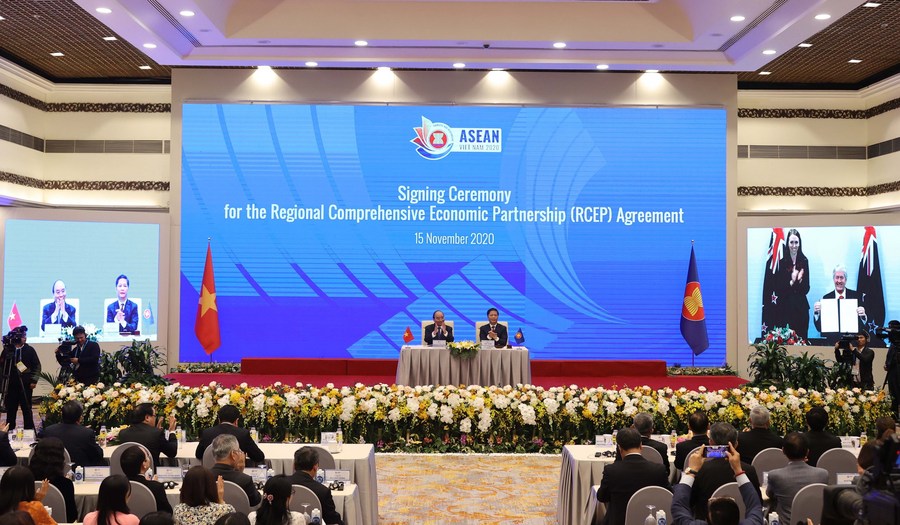China-ASEAN Expo opens, featuring digital economy, RCEP

Themed "Building the Belt and Road, strengthening digital economy cooperation," this year's expo aims to deepen cooperation in trade, the digital economy, science and technology, health, and other fields.
With an exhibition area of 104,000 square meters, the expo has 5,400 booths in Nanning, capital of south China's Guangxi Zhuang Autonomous Region. More than 1,500 enterprises from home and abroad will participate virtually in the four-day event, according to the organizers.
The expo will also host 11 high-level forums and more than 160 economic and trade promotion activities.
BOOMING DIGITAL COOPERATION
This year is designated as the China-ASEAN Year of Digital Economy Cooperation. Strengthening digital economy cooperation was the common call of ASEAN leaders at the opening ceremony.
"China is one of the countries that are at the forefront in developing, investing and utilizing digital technology in the world. In this regard, advancing cooperation in the area of digital technology, under the Belt and Road Initiative, will be an important agenda in the future," said Cambodian Prime Minister Samdech Techo Hun Sen via video at the expo's opening ceremony.
ASEAN's digital economy is estimated to increase from 1.3 percent of the group's GDP in 2015 to 8.5 percent in 2025, according to ASEAN Secretary-General Lim Jock Hoi, adding that China is leading the development of digital infrastructure and is an important partner of ASEAN in promoting the digital economy in the region.
RCEP BOOST
This year's expo also highlights the Regional Comprehensive Economic Partnership (RCEP), the world's biggest trade pact, which was signed earlier this month by 15 Asia-Pacific countries including ASEAN's 10 member states and China. It was a massive move for regional economic integration, multilateralism and free trade.
The expo features a "Belt and Road" exhibition area, and enterprises from RCEP countries including Japan, the Republic of Korea, Australia and New Zealand have participated in the event, according to Wang Lei, secretary-general of the expo's secretariat.
High-level dialogue conducted during the expo will promote greater participation from RCEP members in the construction of the Belt and Road, said Wang, adding that the expo will help integrate the market advantages and resources of the 10 ASEAN members with the capital and technical advantages of other RCEP members.
"I believe that the RCEP will also provide a solid foundation for an open, inclusive, and rules-based global trade environment," said Myanmar President U Win Myint at the expo's opening ceremony.
Xu Ningning, executive president of the China-ASEAN Business Council, said that opening up the markets of the 15 countries to each other will bring about new changes and closer regional cooperation.